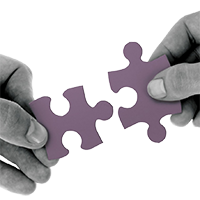29 August 2017

Commissioner Nyland stated that, in child protection, coordination and collaboration between agencies should be the norm. Non-government organisations (NGOs) responding to the Guardian’s June 2017 survey said that, in many instances, it was not.
Most NGOs assessed the frequency of cooperation and collaboration as ‘sometimes’ or less. The full analysis and a wider selection of comments can be downloaded from the link at the foot of this post.
Comments were predominantly critical of the levels of coordination and collaboration. These are a few of those submitted.
…When we are consulted about policy, reforms, structures, processes by government departments it is almost always at the end of the process, is very time limited, doesn’t have clear guidelines re scope of consultation and time frames and impact on decision-making, doesn’t build on the expertise of people in the room or respond to feedback reprocess, doesn’t allow for visionary systems thinking and is focused on government agenda, is not empowering, and doesn’t even do most basic process of feeding back in detail outcomes of the consultation. Co-design and true partnership nowhere to be seen.
There has been almost no detailed and expert NGO and carer and young people input into plans for the CFARNs. The EIRD research agenda does not include mapping the overlap and underlap between services funded from sources other than state government, no input into or info prior to launch of the DCP strategic plan, no DCP scope or information prior to first consultation on OOHC strategy etc.
I have experienced the DCP [as] not willing to always share information with NGOs who are also working with the same children and families. There seems to be an unwillingness by some workers/offices to see NGO providers as partners and work collaboratively together to achieve the best outcomes for children.
Our experience is some workers are great at collaborating and coordinating with foster carers and do it frequently, but, most only sometimes and often when pushed by the carer. We are lucky at present we have a great DCP worker.
I have been working for an NGO in this role since January and I liaise with DECD and the DCP in their mentoring programs. My experience with DECD is that they are amazing to collaborate with and an exciting team forging change. The collaboration and support I get from working with DCP workers, their families and DECD is excellent. I have had some experience with collaborations with DCP, NGO’s and Youth Justice.
Download the statistical analysis, including a wider selection of comments, now.

